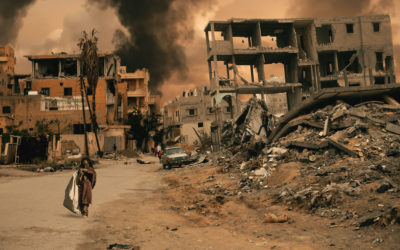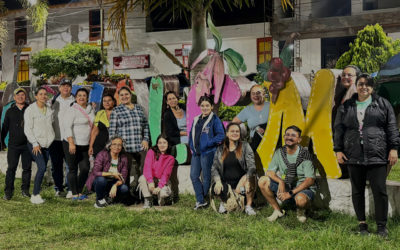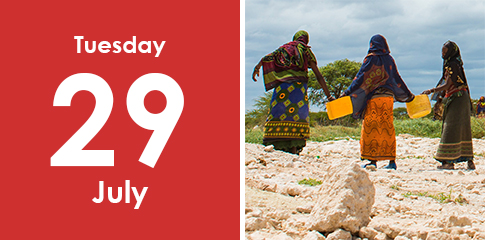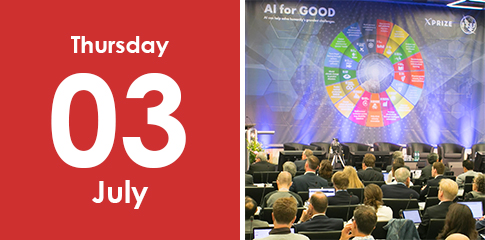The world has been ravaged by the COVID-19 pandemic since early 2020 when the World Health Organization declared it “a public health emergency of international concern”. As countries and territories were trying to navigate the uncharted territory of the threat, it was already an all-consuming international crisis.
Almost every day, the crisis forced governments and leaders to take decisions that not only affected people’s lives and livelihoods but also tested the resilience of people across all income levels. With the implementation of lockdowns and unprecedented restrictions, the COVID-19 pandemic quickly spread from the health sector to social economy, threatening to plunge millions into poverty due to job and income losses.
Evidence suggests that this situation has been exacerbated within the vulnerable groups such as rural households, migrants, refugees, small holder farmers and agricultural producers among many other casual and informal workers.
Social protection systems: leaving no one behind
The Sustainable Development Goals, particularly the priorities enshrined in goals 1, 3 and 8, show a global commitment to developing appropriate social protection systems and measures for all with substantial coverage of the poor and the vulnerable. This means that leaving no one behind is a central premise of the 2030 agenda that caters to all people, all countries and for all segments of the society.
This requires efforts to provide direct assistance to the most vulnerable, eliminate barriers to access essential services, put measures in place to reduce the indelible inequalities and ease the financial woes through a collective responsibility to solidarity.
As the World Bank strategy denotes, when the 2030 agenda was adopted, countries were expected to consolidate social protection systems to be; inclusive, adequate, sustainable, internally and externally coherent and responsive.
While some countries have been commended for implementing and expanding social protection systems, many others especially developing nations have been grappling with including all people, especially owing to the fact that over 80% of the work force are in the informal sector and are not covered by the social protection systems. This meant that in some countries, there was no mechanism to support the unemployed, the elderly and the low income vulnerable households in the face of the pandemic.
COVID-19: An opportunity to review the efficacy of social protection programs
When the COVID-19 evolved, many countries scaled up their social protection response programs. Almost all countries reviewed their social protection policies, introduced recovery plans or programs that covered one or more facets of social protection, helping to prevent vulnerable populations from falling further into poverty and supporting households’ recovery. Countries announced adaptations of their social protection system, albeit at varying degrees of comprehensiveness.
For example in Rwanda, on 5th April 2020, the Office of the Prime Minister announced that senior government officials had agreed to forfeit their April salary as a contribution to funds needed to support needy households. This gesture paved the way for the wider public to mobilise resources and support those who were severely affected by the crisis. In the same month, the Cabinet approved a “Social Economic Recovery plan to support activities affected by COVID-19”. Thousands of people in hard-hit households were given food relief, commercial banks were instructed to ease loan repayment conditions for borrowers and a fund was instituted to support access to capital especially for small and medium enterprises among many other social protection measures.
In Kenya, the cash transfers under the national safety net program continued and on 25th March 2020, the Presidency announced that funds would be disbursed through mobile money channels. The cash transfer support was also extended to more beneficiaries like those who had lost their jobs and the people living with disabilities among many others. The government also solicited more multi-agency and non-state actors to collectively respond to address new vulnerabilities that were arising from the crisis,
According to the World Bank report in 2020, a total of 1,414 social protection interventions in 215 countries had been designed to respond to growing unemployment, loss of income and restrictions on economic activities. Although the programs have been riddled with irregularities, accused of being gender insensitive, impugned for uneven distribution of the support, scorned for the insufficiencies to meet growing needs, the programs were praised for cushioning the impact of the pandemic on vulnerable families whose livelihoods were destroyed by the economic contractions.
Lessons for future shocks
COVID-19 has offered an opportunity to review the efficacy of social protection programs at the national and international levels and should the world experience another crisis in the future, there is need to design decisive action to shape the future of social protection. These are some lessons from the crisis that ought to provide a necessary jolt for universal social protection to be realised:
- Strengthening rural livelihood and production capacity to reduce poverty
- Build household resilience to withstand and cope with shocks and crises (financial, climate, conflict, health etc…) through a range of national and international actions
- Design social protection policies and their implementation plans that are hinged on inclusiveness and local contexts.
As more people get the vaccine and curves of cases and fatalities begin to flatten while some countries ease lockdowns, curfews and other restrictions, there is still an opportunity to recover better by building more inclusive and sustainable societies and move forward together in a better direction – towards achieving the Sustainable Development Goals (SDGs).
Immy Mulekatete (DPP’20)
Head of Communication and Public Engagement at Never Again Rwanda
murimmy@gmail.com









0 Comments